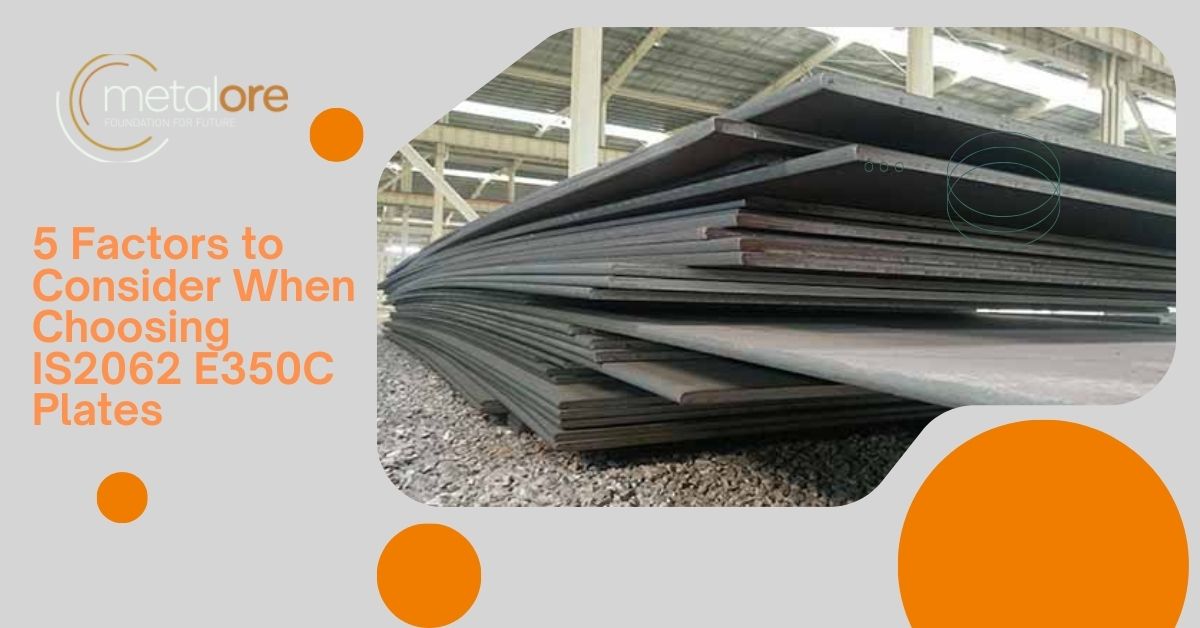IS2062 E350C plates, known for their high tensile strength, excellent weldability, and impact resistance, are extensively utilized in diverse applications within the construction and manufacturing industries. However, the process of selecting the appropriate plates can be overwhelming. This article focuses on five crucial factors to consider when choosing IS2062 E350C plates, empowering you to make an informed decision regarding structural integrity and durability for your specific needs.
Tensile Strength and Yield Strength
The first factor to consider when choosing IS2062 E350C plates is their tensile and yield strength. Tensile strength refers to the maximum amount of stress a material can withstand before breaking, while yield strength indicates the stress level at which a material begins to deform permanently. These properties determine the plate’s ability to bear loads and resist deformation during usage. It is advisable to select plates with higher tensile and yield strengths to ensure the structural integrity of your project.
Chemical Composition and Mechanical Properties
The chemical composition and mechanical properties of IS2062 E350C plates play a vital role in determining their suitability for specific applications. The plates should comply with the specified chemical composition, including carbon, manganese, sulphur, phosphorus, and silicon content. Additionally, consider the mechanical properties such as hardness, impact resistance, and elongation to assess the plate’s performance under different conditions. Understanding these properties will help you select plates that meet the required standards and offer optimal performance.
Plate Dimensions and Sizes
Another important factor to consider is the dimensions and sizes of the IS2062 E350C plates. The choice of plate dimensions will depend on the specific requirements of your project, including the load-bearing capacity, span, and design considerations. Select available plates in the required sizes and dimensions to avoid additional fabrication and cutting costs. Moreover, the appropriate thickness and width of the plates will contribute to the structural stability and longevity of your construction or manufacturing project.
Quality Certifications and Standards
When selecting IS2062 E350C plates, it is crucial to consider the quality certifications and standards they adhere to. Look for plates certified by reputable organizations and comply with industry standards such as ASTM, ASME, or ISO. These certifications ensure the plates have undergone rigorous testing and meet the necessary quality requirements.
Supplier Reputation and Service
Lastly, but equally important, consider the reputation and service of the supplier when choosing IS2062 E350C plates. Working with a trusted and reputable supplier is essential to ensure reliable and on-time delivery of the plates. Look for suppliers with a track record of providing quality materials, excellent customer service, and competitive pricing. A reliable supplier will also provide technical support and guidance in selecting the right plates for your needs.
Conclusion
Choosing the right IS2062 E350C plates is crucial for the success and longevity of your construction or manufacturing project. By considering the factors mentioned above – tensile strength, chemical composition, plate dimensions, quality certifications, and supplier reputation – you can make an informed decision that ensures your project’s structural integrity and durability. Remember to consult with experts and professionals to gather additional insights and recommendations. By selecting the best plates for your specific requirements, you can enhance your project’s overall performance and reliability.

